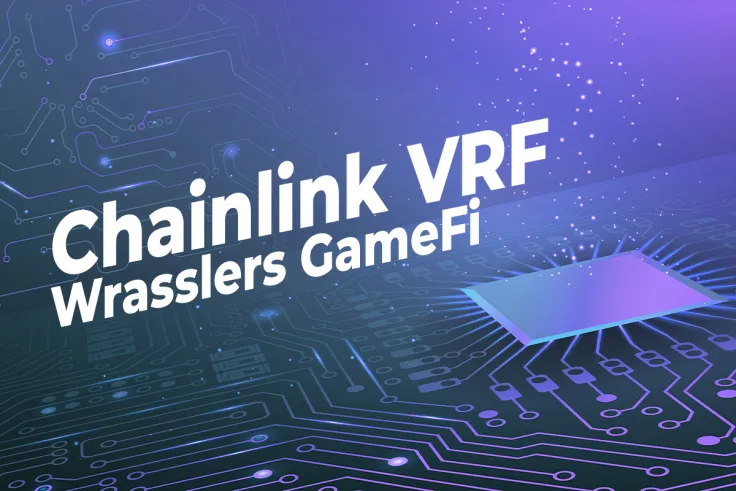
Amidst developing GameFi euphoria, one more "Play-to-Earn" ecosystem advances its verifiable randomness with Chainlink (LINK) tools.
Polygon-based Wrasslers game starts using Chainlink's VRF
According to the official announcement shared by the Wrasslers team, Chainlink's random number generator has empowered its technical design.
.@wrasslersgg is leveraging #Chainlink VRF on @0xPolygon to access a verifiably tamper-proof source of randomness, which is then used to fairly assign character stats, determine in-game moves, and settle match outcomes in its #NFT-based wrestling game.
— Chainlink - Official Channel (@chainlink) September 21, 2021
In new releases of this popular game, the VRF module by Chainlink will be utilized to fairly assign character specifications, determine in-game events and customize match outcomes.
As Wrasslers utilizes Polygon (formerly Matic Network) smart contracts, Chainlink VRF instruments will integrate this smart contracts platform.
Sammy Bauch, founder of Wrasslers' developer 0xEssential, shares that adding Chainlink VRF was a natural step for his team and necessary to build a fair and inclusive gaming ecosystem:
Using Chainlink VRF for Wrasslers was a no-brainer. Chainlink was a big help on my first NFT project CryptOrchids, and Chainlink VRF is even more reliable, fast, and cost-efficient on the Polygon network.
Advertisement
Why are VRFs crucial for the GameFi segment?
From its very first days, Wrasslers promotes itself as an ecosystem for NFT products. Instead of building a gaming environment around a single game, Wrasslers and the Metaverse Wrassling Federation will onboard every NFT product that adheres to the Wrassleable standard.
In its initial releases, Wrasslers enthusiasts will be offered a single-player mode with battles against blockchain CPU.
Chainlink VRF will ensure the randomization of key in-game features such as match outcomes and player data: neither the Wrasslers team nor third-party oracles will be able to affect them.
 Alex Dovbnya
Alex Dovbnya Arman Shirinyan
Arman Shirinyan Dan Burgin
Dan Burgin Denys Serhiichuk
Denys Serhiichuk